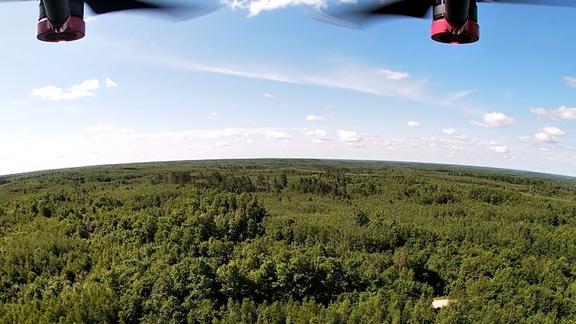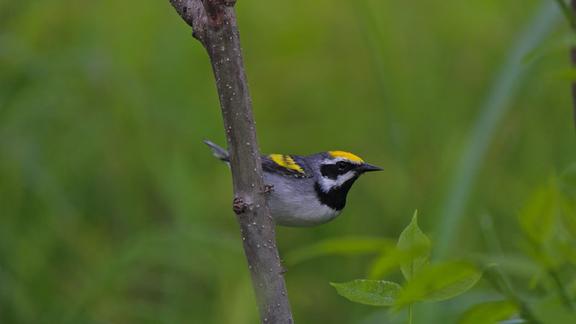
Professional Title
Wildlife Ecologist
About
My research focuses on conservation ecology including studying the large-scale impacts of environmental change on wildlife, biodiversity, and ecosystem function. Applications of my research include informing forest management decisions in relation to changing land use patterns and providing recommendations for conservation plans for species of conservation concern.
Education
- PhD. Integrated Biological Sciences, University of Minnesota, 2015
- MS. Biology, University of North Dakota, 2005
- BS. Biology, Bemidji State University, 2001
Recent Publications
Incorporating weather in counts and trends of migrating Common Nighthawks
8 months 2 weeks ago
Incorporating weather in counts and trends of migrating Common NighthawksKolbe, S. R., Niemi, G. J., Bracey, A. M., Etterson, M. A. & Grinde, A. R., Mar 2024, In: Avian Conservation and Ecology. 19, 1, 9.
Research output: Contribution to journal › Article › peer-review
Habitat use and characteristics of Connecticut Warbler during the nesting and post-fledging period
1 year 1 month ago
Habitat use and characteristics of Connecticut Warbler during the nesting and post-fledging periodGrinde, A. R., Kolbe, S. R., Snow, K. G., Howland, B. S., Niemi, G. J., Slesak, R. A. & Windmuller-Campione, M. A., Oct 1 2023, In: Journal of Field Ornithology. 94, 4, 2.
Research output: Contribution to journal › Article › peer-review
Effects of stand age, tree species, and climate on water table fluctuations and estimated evapotranspiration in managed peatland forests
1 year 3 months ago
Effects of stand age, tree species, and climate on water table fluctuations and estimated evapotranspiration in managed peatland forestsStelling, J. M., Slesak, R. A., Windmuller-Campione, M. A. & Grinde, A., Aug 1 2023, In: Journal of Environmental Management. 339, 117783.
Research output: Contribution to journal › Article › peer-review
Point count offsets for estimating population sizes of north American landbirds
1 year 7 months ago
Point count offsets for estimating population sizes of north American landbirdsEdwards, B. P. M., Smith, A. C., Docherty, T. D. S., Gahbauer, M. A., Gillespie, C. R., Grinde, A. R., Harmer, T., Iles, D. T., Matsuoka, S. M., Michel, N. L., Murray, A., Niemi, G. J., Pasher, J., Pavlacky, D. C., Robinson, B. G., Ryder, T. B., Sólymos, P., Stralberg, D. & Zlonis, E. J., Apr 2023, In: Ibis. 165, 2, p. 482-503 22 p.
Research output: Contribution to journal › Article › peer-review
Evaluating At-Risk Black Ash Wetlands as Biodiversity Hotspots in Northern Forests
1 year 11 months ago
Evaluating At-Risk Black Ash Wetlands as Biodiversity Hotspots in Northern ForestsGrinde, A. R., Youngquist, M. B., Slesak, R. A., Palik, B. J. & D’Amato, A. W., Dec 2022, In: Wetlands. 42, 8, 122.
Research output: Contribution to journal › Article › peer-review





